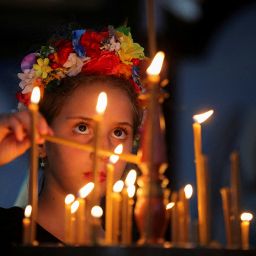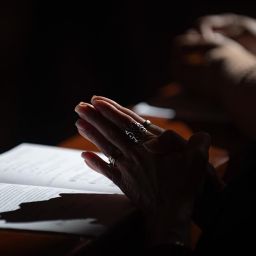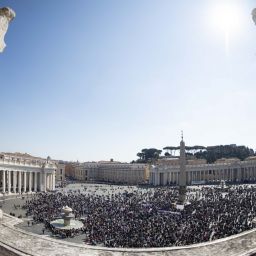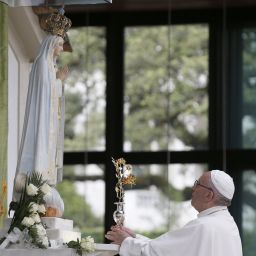By Father Jacob Dankasa
Special to The Texas Catholic
The word sacrifice means several things. In a religious or cultic sense, it may mean “the offering of animal, plant, or human life or of some material possession to a deity, as in propitiation or homage” But in everyday usage it may mean the giving up of something that is considered valuable by one person for something of higher value or for a good that may benefit someone else.
In this reflection I want to reflect on the term “sacrifice,” drawing on its root meaning. I want to consider how it relates to our lives as Christians and why we should find joy in making sacrifices. In some sense, this reflection will draw from both the everyday meaning and the religious meaning of sacrifice as we Christians see it.
The word “sacrifice” is derived from the Latin word “sacrificium.” It’s a combination of two Latin words: sacer (holy) and facere (to make). In this sense, therefore, sacrifice means something like “to make holy,” which implies that making a sacrifice is a holy act, that the act of sacrifice makes one or an act holy. (Of course, this concept is applicable to a genuine sacrifice, but it excludes things done in the guise of sacrifice, such as acts carried out with a selfish purpose or acts that have evil as their end. Those acts do not fall within the purview of what could be described as holy acts.)
A sacrifice that makes one holy depends on motivation. If one’s motivation intends nothing but the good of the other, then an act of sacrifice becomes rewarding and sanctifying. We make a true sacrifice because we want to attain holiness — we want to be sanctified — and because we love. Every act of genuine sacrifice we make gives us the gift of sanctification. So what do we sacrifice, and how does it make us holy?
When you live with a spouse or relative that is battling disability, sickness, unemployment or some other hardship of life and you hold strong, stay around him/her and serve as support, you’re making a sacrifice, a holy act that will sanctify your soul. When, out of the resources that God gives you, you share with the poor and needy and assist your church community in enhancing the work of God, you’re making a sacrifice, a holy act that sanctifies you. When you volunteer your time for a good cause so that others can benefit from what you do, you’re carrying out a holy act. Think about anything that you can do that will brighten someone’s life, even if it’s inconvenient or uncomfortable for you; that is an act of sacrifice, a holy act that sanctifies you. Every act of genuine sacrifice, however little, comes with the blessing of sanctification.
In the context of the liturgy of the Church, when we participate in the sacrifice offered on the altar — the Eucharistic Sacrifice — we become holy because we share in the priesthood of Jesus, and the priesthood of Christ sanctifies everyone who partakes of it. And the holiness we share from the Eucharist should help us become a sacrifice to the world: “I urge you therefore, brothers, by the mercies of God, to offer your bodies as a living sacrifice, holy and pleasing to God, your spiritual worship” (Romans 12.1).
We are all called to sacrifice, to make ourselves holy. All our acts of sacrifice should lead to holiness. When we make a sacrifice, when we do something with a clear and genuinely loving motive, we are sharing in the sanctifying ministry of Jesus Christ, the model of sacrifice, and blessings will surely come our way.
Next time you think of making a sacrifice for the sake of someone else or for a good cause, don’t hesitate. Go for it. It takes nothing away from you, but rather it sanctifies you. Never be afraid to make a sacrifice.
Father Jacob Dankasa is the pastoral administrator of Holy Family of Nazareth Catholic Church in Irving.















